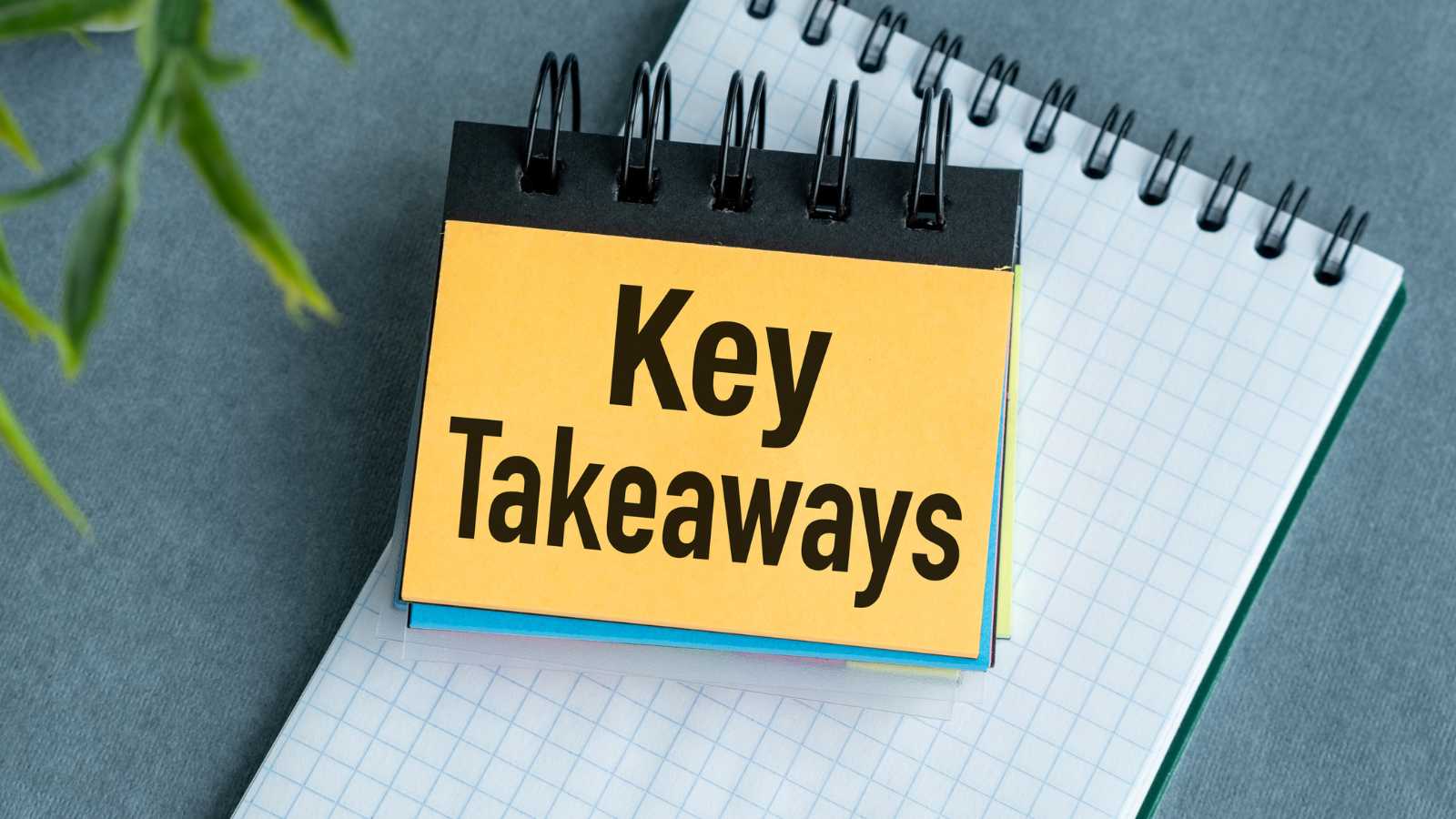8 things highly intelligent people simply won’t tolerate

Ever felt your brain start to melt during a conversation about… absolutely nothing? We often mistake this frustration for arrogance or impatience, but it’s usually something else entirely: a deep-seated intolerance for cognitive friction. This isn’t just a feeling; it’s backed by neuroscience.
The “neural efficiency hypothesis” suggests that brighter brains are more efficient, showing lower cerebral metabolic rates during task performance. They use less energy to get the job done. This means that when an efficient brain is forced to deal with inefficient systems, it feels like a high-performance engine running on sludge.
This friction is everywhere. We see it in our professional lives, where disengagement costs the world a staggering $8.8 trillion in lost productivity. We also see it in our social lives, which U.S. Surgeon General Vivek Murthy officially declared a “public health epidemic” of loneliness. So, that “intolerance” you feel? It’s not a character flaw. It’s a logical, high-efficiency mind reacting to a high-friction, low-value world.
Here are eight things knowledgeable people simply won’t tolerate.
Small talk that goes nowhere

We’ve all been trapped in that conversational cul-de-sac. You spend 20 minutes swapping weather reports and weekend plans, and it never deepens into real talk. This isn’t about being an introvert. I love a good chat as much as the next person. It’s what author Susan Cain, who championed introversion, calls the need for “the right lighting”.
The frustration comes from a craving for genuine connection in a world that’s starving for it. A 2023 Cigna study found that 58% of U.S. adults are classified as lonely, and a 2024 APA poll found that 30% of adults feel lonely at least weekly. Smart people often want to skip the script and get to the core. They’re looking for what researcher Brené Brown calls “spiritual connection”, not a hollow social transaction.
Systemic inefficiency (aka ‘work about work’)
Does your workday feel like a series of pointless conversations, constant context-switching, and meetings that ignore the “opportunity cost” of your time? This isn’t just annoying; it’s a neurological assault. These interruptions create “extraneous cognitive load,” forcing your brain to spread its limited resources thin just to keep up.
This isn’t just a personal pet peeve; it’s an economic catastrophe. Gallup estimates that “actively disengaged” employees—the direct result of this frustration—cost the U.S. between $483 billion and $605 billion in lost productivity each year. When you’re micromanaged or stuck in a meeting that could have been an email, your brain (rightfully) flags it as an infuriating waste of energy. IMO, that’s just insulting.
Willful ignorance
There’s a vast difference between ignorance (not knowing something) and willful ignorance (choosing not to know). Knowledgeable people are driven to solve problems, a process that requires integrating new and sometimes “uncomfortable” truths. Willful ignorance is the opposite. It’s the “I’m not going to look at that” problem, and it’s a direct symptom of cognitive dissonance, the discomfort of holding two conflicting beliefs.
A shocking 2023 meta-analysis found that, on average, 40% of people will intentionally choose to remain ignorant of the negative consequences of their actions, often to have a “built-in excuse to act selfishly”. And a 2024 Stanford study found this tendency is widespread “across the political spectrum, education levels, and reasoning ability”. As Benjamin Franklin put it, “Being ignorant is not so much a shame, as being unwilling to learn”.
Performative “rage bait”
Ever get into an online argument only to realize you’re in a “debate with people who aren’t actually debating”? You’re likely engaging with “rage-baiting.” It’s a manipulative media tactic of “eliciting outrage with the goal of increasing internet traffic, online engagement, [and] revenue”. People turn fury into “clicks, comments, [and] shares”.
A 2024 Tulane University study identified a “confrontation effect,” finding users are more likely to interact with content that challenges their views, often “driven by outrage”. Worse, a Yale study found that social media platforms teach people to be angrier. Users learn that expressing moral outrage is “rewarded with an increased number of ‘likes’ and ‘shares'”. For someone seeking an honest exchange of ideas, this disingenuous game is exhausting.
A culture of excuses

Highly intelligent people often operate from a strong internal locus of control—the belief that they are “in charge of the events that occur” in their lives. They make things happen. The opposite is an external locus of control, which “blame[s] other factors such as… chance, fate, or outside forces” for life’s events. This is the very definition of an excuse culture.
Research consistently shows that an internal locus of control is “directly associated with academic success” and “psychological well-being”. I’m a big fan of Jocko Willink’s philosophy of “Extreme Ownership.” His core tenet: “The leader must own everything… There is no one else to blame”. People who embrace this don’t make excuses; they “take ownership of the solutions”.
Chasing external validation
Smart people tend to be driven by intrinsic motivators: autonomy, mastery, and purpose. They do the thing for the sake of doing the thing well. Chasing external validation—living for “likes,” praise, or approval—is the opposite. It’s an “extrinsic” trap.
It’s also biologically stressful. Research shows that constantly seeking external validation can increase your body’s stress hormone, cortisol, by up to 35%. This chase leads to what many call “performative authenticity”, which researcher Brené Brown calls a “hollow substitute for belonging”. True belonging, she says, “only happens when we present our authentic, imperfect selves to the world”.
The paradox of imposter syndrome
Here’s the frustrating paradox. While intelligent people dislike seeing others chase validation, they are often the primary victims of imposter syndrome—the feeling of being a fraud.
An estimated 70% of the general population has experienced it, and it’s most acute among high achievers. One study found that 78% of business leaders have felt it. This often stems from what psychologists call “asynchronous development”—where advanced cognitive abilities are out of sync with other parts of your development, making you feel “remarkably ahead in some areas while being average or behind in other ways”.
Intellectual arrogance
This might be the biggest one of all. The thing that brilliant people can’t stand is the person who “make[s] being smart their entire personality”. We’ve all met this person. They “have to have an opinion on absolutely everything” and correct people just to prove they’re the smartest in the room. This is the Dunning-Kruger effect in action: a cognitive bias where people with low ability in a specific area tend to overestimate their skill.
The ironic twist? The same 1999 study found that high performers tend to underestimate their abilities. Nobel Prize-winning psychologist Daniel Kahneman said it perfectly: “We’re blind to our blindness. We’re generally overconfident in our opinions”.
But the ultimate quote on this comes from historian Aleksandr Solzhenitsyn: “Intolerance is the first sign of an inadequate education… truly profound education breeds humility.”
Key Takeaway

So, no, you’re not a jerk for feeling frustrated. That “intolerance” is often just a sign of an efficient brain rejecting inefficiency, willful ignorance, and arrogance.
At the end of the day, accurate intelligence isn’t about having all the answers or proving how smart you are. It’s about having the humility to know you’re “wired for struggle” and the courage to keep asking the right questions.
Read the original article on Crafting Your Home.







